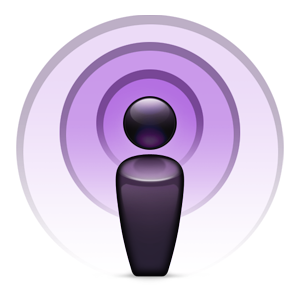Everyone has that friend—you know, the one who can’t go five minutes deep into a conversation without bringing up current events. He’s the friend with knowledge and an opinion on everything, the one who the one who totally called that high profile resignation or out-of-the-blue political decision. Every conversation with this friend inevitably drifts towards what is happening where, who has discovered what, and his personal take on it all. The resident life analyst of your friend group, he is like the New York Times and The Rolling Stone and ESPN and the latest episode of Game of Thrones all rolled up into a delicious pasta salad of know-it-all. If he learns something, you do too. Exploding with fervor, he’ll nonchalantly drop references to forty-year-old legislation or ask your opinion (“Which of course you know,”) on the most recent PEW study on the state of economy in the aftermath of the 2008 market crash.
It’s all you can do during these types on conversations to pretend like you know what he’s talking about. Personally, I like to take a page out of the book of a certain group of penguins:

I find that I often seek out this friend when I have questions about the context or back story of a current event. More often than not he can tell me what the big deal is with that Supreme Court ruling, or conversely, why that confusing media scandal isn’t worth my time. While these conversations are a win-win for both of us—I get to learn something new and useful about the way the world works, and he gets to share his knowledge with an enthusiasm that sometimes warrants concern— more often than not I recede into the shadows when one or more of these people end up in the same room together. The sheer amount of knowledge they possess on everything can be intimidating.
Being well-informed or well-read isn’t a bad thing, on the contrary. Well-informed people prod the rest of us to be involved in our communities and our world; they serve as social lighthouses, guiding ignorant boats through the tumultuous ocean of 21st century media options. And despite the flood of social media that we use every day, I have the feeling many people are left wanting when it comes to being more “connected.”
As an aspiring journalist, I’ve slowly come to realize than it will be my job to know everything that is going on. Timeliness is next to Godliness in the news industry, and the difference between being the one to break a story and having to settle for a follow up can be an astute eye or ear. In order to do their job, it’s important for journalists to cultivate a healthy and balanced diet of news, opinions, ideas, movements, projects and research. In order to find inspiration for stories, to back up facts or quotations or to build relationships with sources, having an in-depth understanding of current events is imperative.
This realization has pushed me to make being generally well-informed a habit. I’ve started to do some things that will (hopefully) result in a more informed and involved me. I like to think these habits apply to everyone, not just who fancy the profession of a newspaperman.
Reading the news is the first step. Although it sounds like common sense, reading (read as: not skimming) news articles in a local or national newspaper or online is the easiest and most accessible way to start educating yourself about current events.
It can also be intimidating—which screaming bold headline should you click on first?
Honestly, it doesn’t really matter. Unless you are the most apathetic person on earth, you’re bound to find something that interests you while you peruse. I find online versions of newspapers or online-only publications to be the most helpful in this regard. Local newspapers may be sparse on stories you find relevant (a small town Montana paper, for example), while well-known papers like the New York Times have an intimidating number of pages that could require some serious digging to find anything of interest. Online publications number of advantages, especially for a generation who speaks fluent Internet. Sites like Slate and The Daily Beast have a dynamic color scheme and diverse, interesting headlines that are backed by appealing photos. On the Internet, there is no limit to the number of pictures that can accompany a story. In a generation that wants everything quickly, pictures can often be the deciding factor in whether or not a news article gets read or not. The Daily Beast has a neat feature called the “Cheat Sheet,” which features the top ten news stories of the day and includes links to the stories on their original site.
Using your chosen media vehicle, browse around and find something that interests you. Read it. Reread it. Click on any related backstory links. Google the topic. Look for more of the authors work, or check out their Twitter. You don’t have to form any opinions; judge the article for the article, read until you get a grasp of what’s going on and then move on.
Exercise: Once I find an interesting story, I like to open several tabs and bring up the same story on different news sites. Not only will this help you to parse the most important information, but it could lend insight to the different points of view and ideologies of the publications. Also, reading publications
Resources: Slate, NYT, The Daily Beast, Mediagazer, The Associated Press, al Jazeera, The Wall Street Journal, Politico
Auditory learner? Working long hours? Not to fear, there is a diet for you! Recently I began to use my 10-hour work days to my advantage. Instead of plugging in my favorite hard rock playlist, I stared listening to a podcast called Radiolab. Radiolab is a curious mix of narrative, music and discussion that amounts to an incredibly poignant exploration of a wide range of topics. After the first show I was hooked, and devoured episode after episode until I realized how much I was learning about, well, everything. It was downhill from there. I was subscribing to podcasts left and right—from Slate’s “The Gist” to PRX’s “Love + Radio” to any number of NPR radio programs.
The best part? It’s all for free.
Podcasts are an incredible medium of communication that encourage learning and allow for a degree of multitasking, all for free. Most shows do ask for a donation from time to time; you can think of these as less-annoying Spotify ads. Podcasts range in topic from hard news (Democracy Now), to story driven (This American Life, 99% Invisible) to game shows (Wait Wait…Don’t Tell Me!). But that’s only the tip of the podcast iceberg. Call-in radio advice, political commentary, sports analysis, audiobooks, comedy, video games and countless other shows on a myriad of topics await the eager listener. It’s a great way to catch up on daily events if you are unable to read during the day, or if you simply prefer human voices to ink and pixels.
Tip: Awhile ago, iTunes stopped sorting podcasts alongside other media. As a result of this, a separate app is needed to sort podcasts that you have subscribed to. The iTunes version of this app is, frankly, poor. However, there are a lot of solid podcast apps out there that will help you find, organize and listen to your favorite shows. I use PodCruncher, but I’ve also heard good things about Stitcher Radio.
You can check out On the Media if you want to get the media’s view of the media. Meta.
Resources: NPR, PRX, PRI, Radiotopia
Once you’ve sampled and digested a few different plates in your news diet, it’s time to organize everything. Enter RSS feeds. No longer will you have to flip through a bulky newspaper! No longer will you have to open hundreds of tedious browser tabs! Never again shall you have to work to be a well-informed person! Nay, RSS feeds are one in a line of increasingly efficient methods of looking at the stuff you think is awesome with the least possible effort. They allow you to view all of your favorite sites from a single webpage, so you can get the lowdown on the Kentucky derby odds whilst browsing Pinterest and cute cat videos. For the purposes of this post, we’ll focus on using it for news.
Once you have developed some news sources you enjoy, you can use an RSS feed to organize all of that information in a single place. You’ll receive the top headlines of the day from as many different sources as you want, all on a single webpage or from a mobile phone. I will admit I’ve only recently got around to exploring this vehicle for current events, but so far I’ve enjoyed my experience. I am currently experimenting with the Feedly, Newsify and Pulse News apps. These apps/sites arranged news in an appealing and eye-catching manner, and the mobile versions in particular allow you to swipe from publication to publication rapidly. Perfect for those brief moments when you don’t have time to read in-depth stories, RSS feeds are like the scoreboards of media sources: everything you need to know in one well-organized place.
Of course, no discussion on aggregate sites would be complete without mentioned Reddit. Instead of trying to explain the love/hate affair that is Reddit, I’ll let this guy give you the skinny on the front page of the internet.
Resources: Feedly, Pulse News, Reddit, Newsify

I hope to use all of this neat stuff to better educate myself on what people in the world are up to, and I hope it was helpful. While the news can be gloomy sometimes, I think it’s important to keep up to date with what’s going on in the world, journalist or not. Bad news does sell, but it also helps key media consumers in to things that are going wrong, and hopefully push them to do something about it.
And after all, we are kind of stuck here. Might as well see what’s on.
Some of my favorites:
http://www.slate.com/articles/podcasts/gist.html
http://www.thisamericanlife.org/


